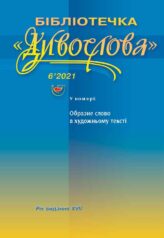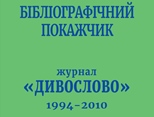 /-->
/-->
Стаття №2 з журналу «ДИВОСЛОВО» №12 (729) 2017 р.
Методичні запропоновання Жанни ТЄТЄНЄВОЇ,
учителя Вараської ЗОШ І–ІІІ ст. № 1, Рівненська обл.
У статті подано два плани-конспекти уроків з української мови та літератури. Урок із синтаксичної теми про основні типи підрядних речень призначено для опрацювання у класі з поглибленим вивченням української мови. Засвоїти вказану тему практично та ґрунтовно допоможе цікавий дидактичний матеріал про життєпис і творчий доробок геніальної української художниці Катерини Білокур. Урок літератури охоплює вивчення окремих розділів повісті Гр. Тютюнника «Климко». Запропоновані на початку уроку тестові завдання дають змогу визначити рівень засвоєння учнями змісту прочитаного, а інтерактивні вправи та робота у групах забезпечують глибинний аналіз твору.
Ключові слова: типи підрядних речень, тестові завдання, перегляд презентації, ідея твору, запитання до розділу, творчі завдання, інтерактивна вправа.
Methodology guidelines by ZhannaTETENEVA,
teacher, Primary and Secondary School #1 of Varash, Rivne Oblast
1. Basic types of dependent clauses. For the 9th form students majoring in Ukrainian language and literature.
2. Hryhir Tiutiunnyk. Klymko. Ethical and moral lessons of kindness, generosity, and family care. The 7th form.
The artice offers two lesson plans of Ukrainian language and Ukrainian literature. The lesson on the basic types of dependent clauses is developed for students majoring in the Ukrainian language. Interesting didactic material based on the life and artistic legacy of a brilliant Ukrainian painter Kateryna Bilokur is aimed to thoroughly master the practical aspect of the topic. The literature lesson is focused on separate chapters of a novelette Klymko by Hryhir Tiutiunnyk. The opening test tasks allow the teacher to appreise the ability of the students to learn the content of the text read; the interactive exercises and group activities facilitate a detailed analysis of the text under study.
Key words: types of dependent clauses, test tasks, viewing a presentation, the statement of the literary writing, questions on the chapter, creative tasks, interactive exercise.

